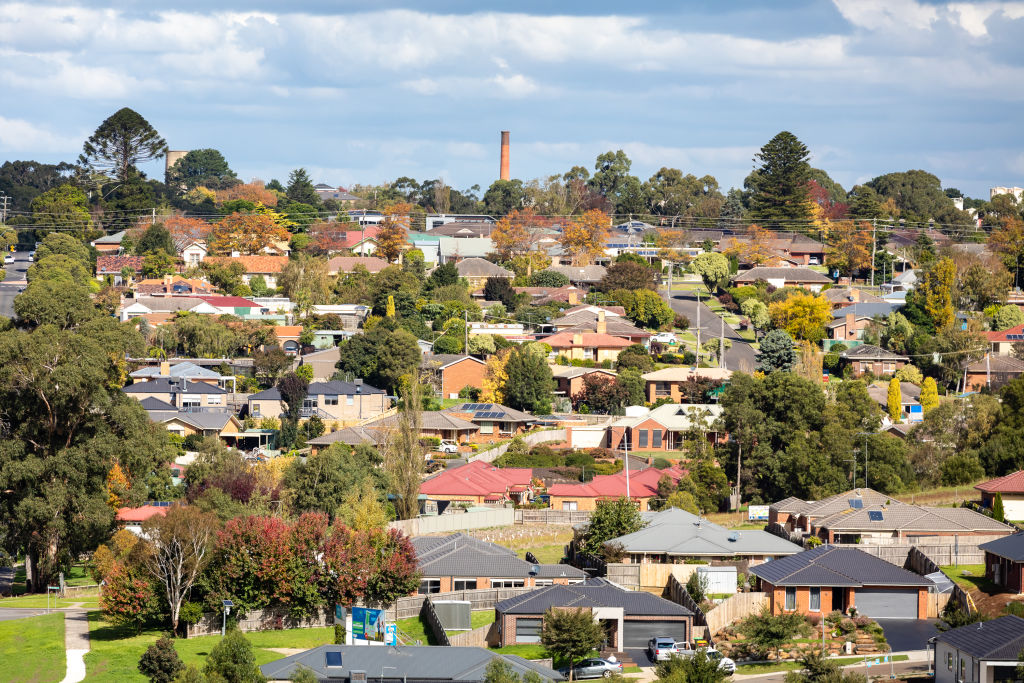The NSW government’s new first home buyer scheme explained
One of the centrepieces of the NSW budget this year was the introductions of a new scheme for first home buyers.
The First Home Buyer Choice scheme lets those buying their first property to opt out of paying stamp duty upfront in exchange for a smaller annual tax.
The legislation is going to be introduced into parliament next month, so with the Sydney property market tipped to slowly rise again after a winter slump, and the cost of living pressures increasing weekly, we’re taking a closer look at it.

What is it?
The scheme aims at reducing the cost of entering the property market by removing stamp duty – which can be a massive extra expense on top of the cost of a house.
It means first home buyers will be able to opt in for an annual property tax plus a percentage of the land’s value instead of a lump sum payment.
When does it start?
It officially begins on January 16, 2023.
However any first home buyer who makes a purchase from when the legislation is enacted until January 15 of next year can apply for a refund on their stamp duty and choose to opt into the tax instead.
“This is about removing one of the largest upfront costs to buying a home and helping more first home buyers realise the great Australian dream of home ownership,” NSW Treasurer Matt Kean told 9News.com.au.
How does it work?
Right now when you buy a property in NSW you pay a one-off stamp duty on the purchase price.
Under the new program you can choose to instead pay an annual tax of $400 plus 0.3 per cent of the land value (not the purchase price).
Can I see some examples?
Someone buying their first home in Sydney for $830,000 with a land value of $265,000 can choose between upfront stamp duty of $32,440 or an initial annual property tax of $1,195.
A person purchasing a different Sydney house for $1,350,000 with a land value of $810,000 can pay $59,125 in stamp duty – or an initial annual property tax of $2,830.
Is the land then locked into the property tax forever?
No. If properties that are subject to the property tax are sold, they will not be locked into the property tax for subsequent owners.
The new owners, if they are first home buyers, can then choose whether to pay the annual land tax or stamp duty.
If they’re not buying their first home – the usual stamp duty rules apply.
How much is the government putting in?
The treasurer said the NSW government has allocated $728.6 million over the next four years. That’s just over $182 million a year.
“We know that first home buyers are being forced to enter the property market later in life and saving for stamp duty can add years onto the time it takes to save for a deposit,” Kean told 9News.com.au.
“This reform will help young individuals and families get a foot on the property ladder earlier and enjoy the personal financial security that comes with home ownership.”
Who is eligible?
If you’re buying your first home and you’re over 18 – you’re eligible.
The home has to be $1.5 million or less, you must be an Australian citizen or permanent resident, and you have to move into the house within the first year and live in it for at least six months.
What if I already applied for stamp duty exemption?
Currently, if you buy a home for less than $650,000 you can apply for a full stamp duty exemption. This remains the same.
What if I move out and it becomes an investment?
If you bought the property as a first home buyer, opted for the property tax and then turned it into an investment the scheme changes.
You will be required to pay $1500 plus 1.1 per cent a year. The policy is specifically designed to help first home buyers get into the property market.
So, am I better off paying stamp duty or a property tax?
That depends. The median time people hang onto their homes in NSW is ten-and-a-half years. First home buyers generally keep them for a little longer than that.
Based on that you’d probably be better off paying a smaller annual tax rather than a lump sum. But, you should always get independent financial advice.
Okay – what are the downsides?
Economic Policy Program Director at the Grattan Institute, Brendan Coates, says stamp duty reform is “a really big prize” but this scheme is a “very small step”.
“It stops people from moving house as their lives or income changes, because they don’t want to pay stamp duty on a second house.
He said changing stamp duty shaves an average of two years off the time it takes to save for a deposit, but may have other economic impacts.
“It could push up prices across the market – particularly for the homes that are eligible for this policy,” Coates said.









